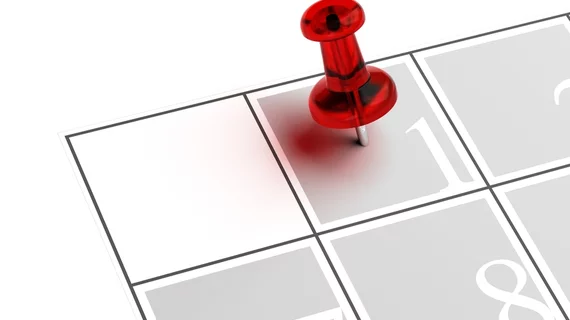Southwest Medical Imaging marks 3 weeks since canceling contract with UnitedHealthcare
Thursday marks three weeks since Southwest Medical Imaging in Scottsdale, Arizona, canceled its contract with the nation’s largest commercial insurer, with no end to the impasse in sight.
Southwest (doing business as SMIL) first announced July 11 that the 70-physician practice and its 19 locations were out-of-network with UnitedHealthcare. The contract only applies to its outpatient imaging centers, which span several Arizona communities including Scottsdale, Phoenix and Mesa.
The practice issued an update July 31, claiming that UHC has not offered a rate increase during the negotiation period. “In fact,” the last pay bump SMIL received from UnitedHealthcare was 1% in 2021.
“UnitedHealthcare’s contract proposals indicate that they don’t recognize the escalating costs of continuing to provide safe and high-quality medical imaging to patients in the current economic landscape,” Southwest Medical Imaging CEO Michael Douglas, MBA, said in a statement. “While we understand their desire to control costs, this shouldn’t be at the expense of the medical professionals who are providing these services. At the same time, UnitedHealthcare is making billions of dollars in revenue.”
SMIL noted in its announcement that UHC is posting “record” profits. Last year alone, its parent company UnitedHealth Group collected $22.4 billion in net earnings, up more than 11% year over year.
UnitedHealthcare reiterated Wednesday that SMIL has yet to issue a legally valid notice to end its contract with the insurer. However, to mitigate confusion caused by the radiology group’s actions, SMIL is no longer part of UnitedHealthcare’s commercial and Medicare networks effective July 11.
“Southwest Diagnostic Imaging/SMIL is demanding a more than 30% price hike over three years, including a nearly 20% increase in just year one, that is not affordable or sustainable for families and employers in Arizona,” a UnitedHealthcare spokesperson told Radiology Business Wednesday. “We have offered rate increases that ensure Southwest Diagnostic Imaging/SMIL will continue to be reimbursed at market-competitive rates.”
The spokesperson emphasized that UHC remains “committed to continued discussions.” However, its current focus is ensuring a “smooth transition to a new provider.”
Southwest Diagnostic Imaging said its goal is to make high-quality care sustainable in a setting where “SMIL can compensate staff appropriately.” The practice also stressed the importance of investing in new equipment and delivering an “outstanding patient experience.” SMIL remains contracted with other key insurers in Arizona including Blue Cross Blue Shield, Aetna, Cigna and Humana.
The practice also said it is committed to reaching a new agreement and restoring in-network access.
“Even with rising costs, especially in the areas of labor and medical supplies, SMIL has continued to invest in equipment upgrades and subspecialty radiology services to ensure the highest quality of care for our patients,” Douglas said in the announcement. “We are asking UnitedHealthcare to pay us fair rates for the quality of services that SMIL provides to patients that our other payers have agreed to.”
Southwest Medical Imaging was formerly an affiliate of Radiology Partners, joining as a partner in late 2017. However, the practice transitioned to an RP client in 2022, with the industry giant providing physician services to SMIL’s imaging centers.

